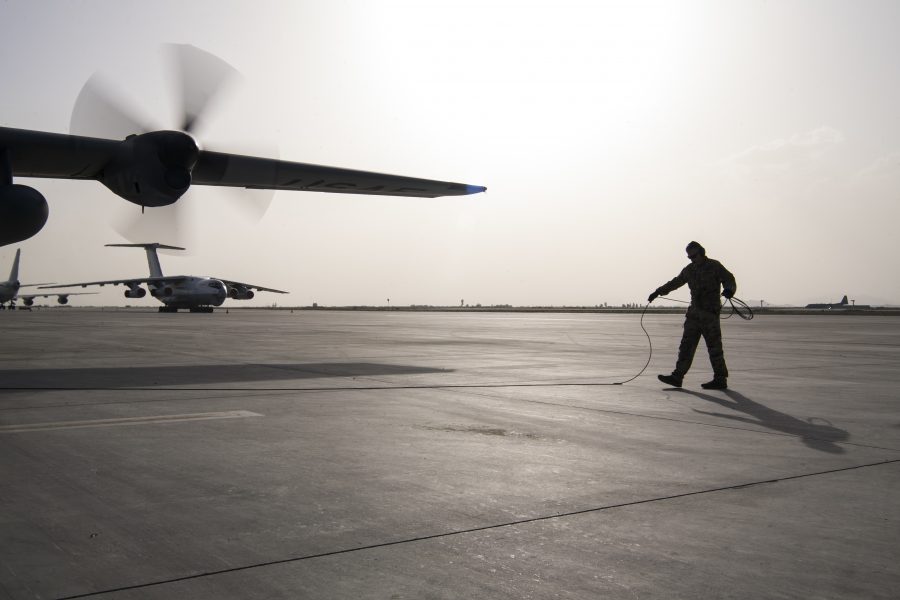Despite a framework for peace in one theater and White House declarations of upcoming troop withdrawals in another, the head of U.S. Central Command said June 10 there’s no finish line or full withdrawal in sight in either Afghanistan or Syria.
CENTCOM boss Gen. Kenneth McKenzie, speaking at a virtual Middle East Institute conference, said the U.S. is ahead of its timeline to reduce its troop level in Afghanistan to 8,600 by next month, as outlined in a February deal with the Taliban. However, the Taliban is not holding up its end of the agreement and has continued to “aggressively” attack Afghan forces, he said.
“We don’t have to like the Taliban, we don’t have to believe the Taliban. We have to watch the Taliban and see what they do,” McKenzie said. “It is unclear to me yet that they have fully embraced this and are ready to move forward.”
While the Taliban has not attacked U.S. forces directly, the group has targeted Afghan National Defense and Security Forces outside city centers. The pace of their attacks has picked up since a three-day ceasefire, set to mark the Muslim Eid al-Fitr holiday, ended in late May. U.S. aircraft responded with retaliatory airstrikes on June 4.
The Afghan government and the Taliban expect to begin peace talks in the near future, though no specific timeline has been set. This is “a very critical time” for the peace process going forward, McKenzie said.
A U.S.-Taliban deal aims to fully withdraw American troops from Afghanistan by May 2021, if security conditions permit, and if the Islamic extremists assure they will not attack U.S. or coalition countries.
“As of right now, those conditions have not been fully met,” McKenzie said.
In Syria, the Islamic State group has largely moved underground and focused on cyber operations, plus launching some local attacks, McKenzie said. The insurgent group still aims to take control of land to establish a physical caliphate, after U.S., coalition, and Kurdish-led Syrian Democratic Forces drove it from its footholds across the Middle East.
McKenzie said military forces have diminished the Islamic State’s ability to launch attacks on other nations.
While the SDF, supported by the U.S. and other foreign militaries, has maintained control over eastern Syria and even taken over oil production facilities for income, quality of life in that part of the country has not improved. Russian forces and Iranian proxies are supporting the Syrian regime in its decade-long civil war, and the socioeconomic conditions in the east that originally fueled the Islamic State’s rise still persist.
Without a decision on the long-term way forward, the U.S. is “firmly focused on ISIS” alongside the SDF, McKenzie said.
“I don’t know how long we’ll remain in Syria … so long as we’re there, we’re going to continue to operate against ISIS,” he said.

